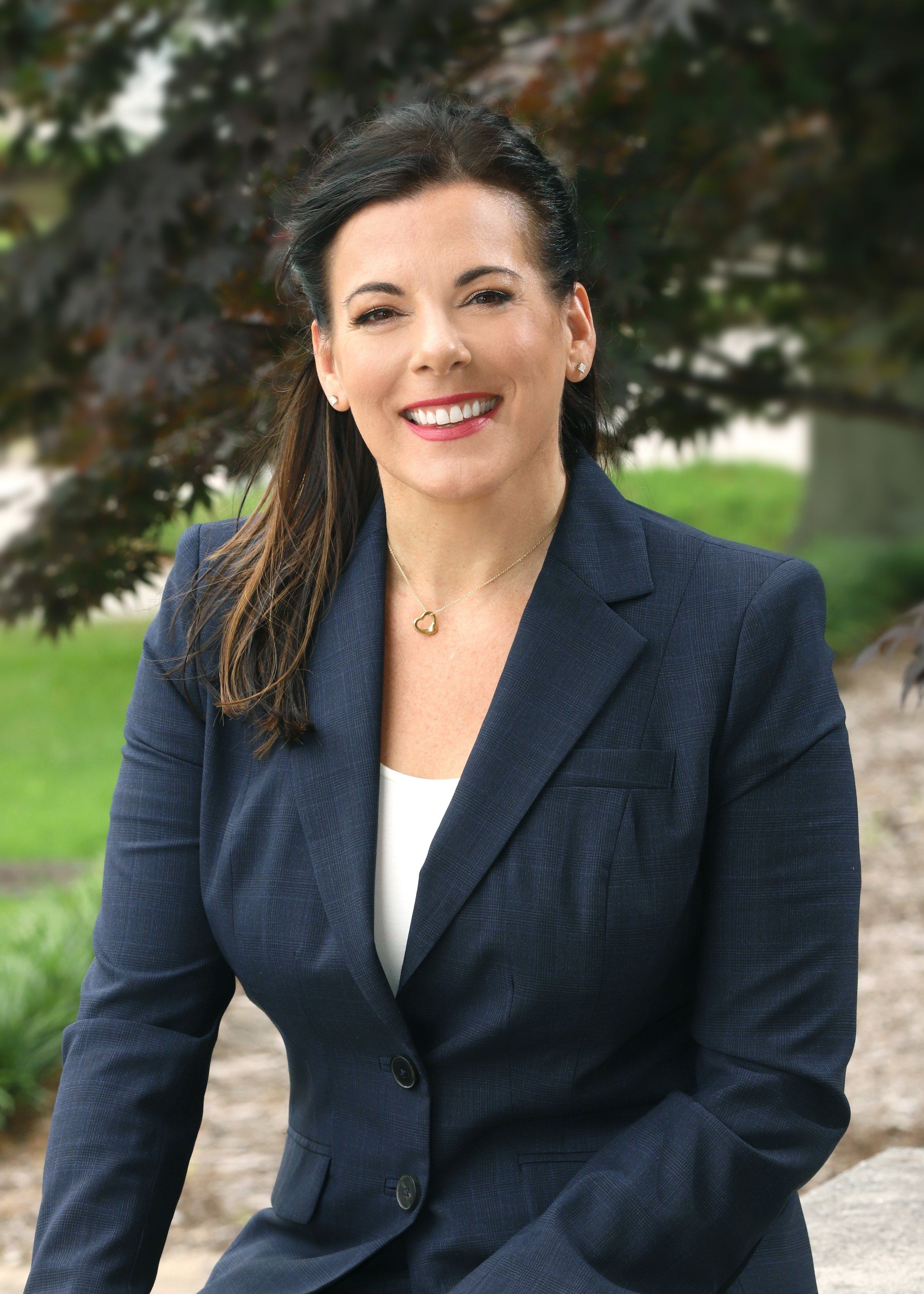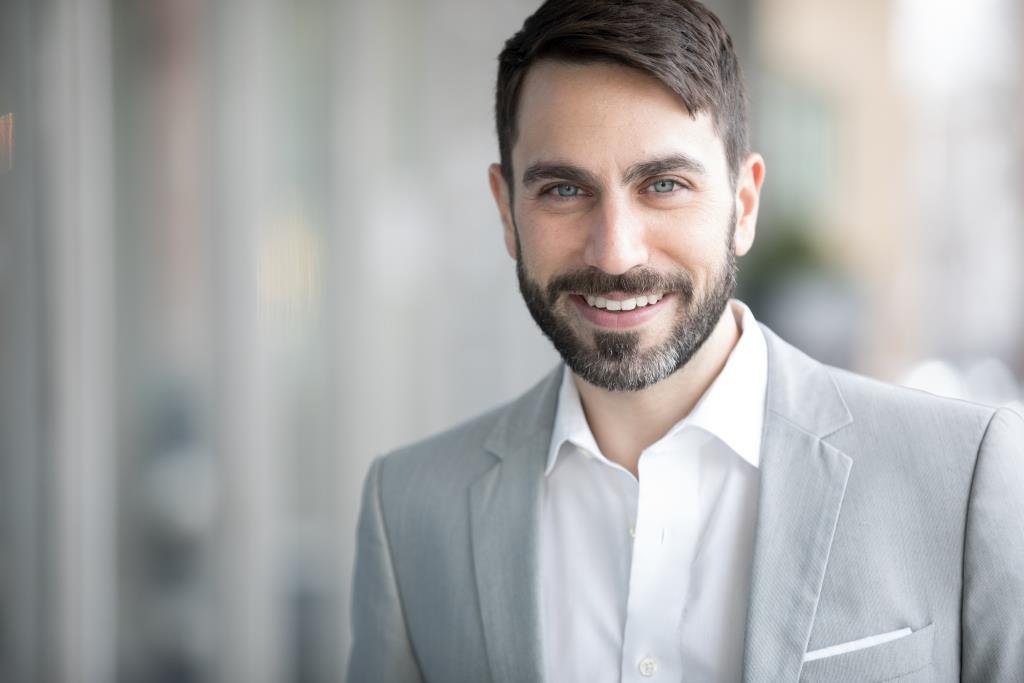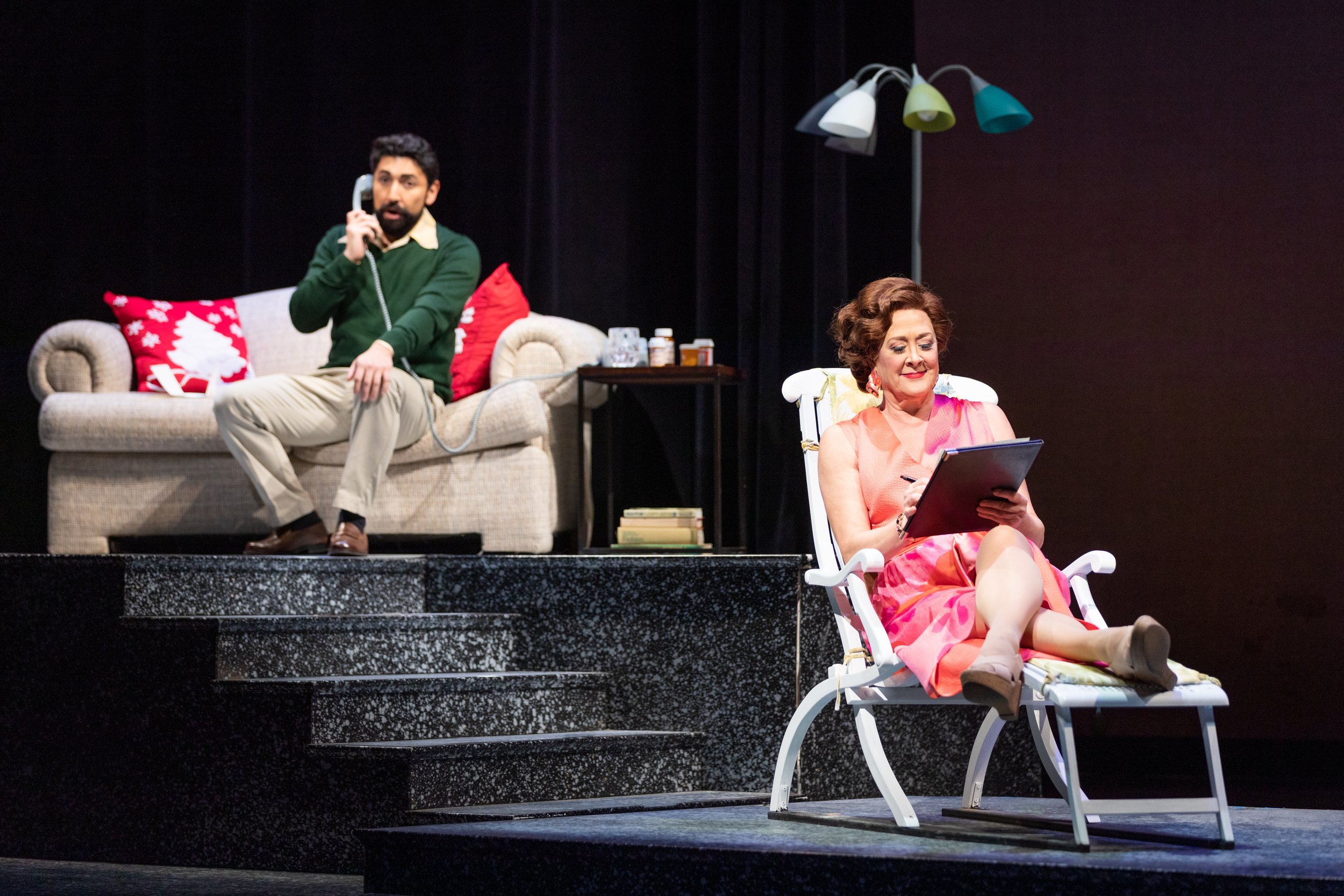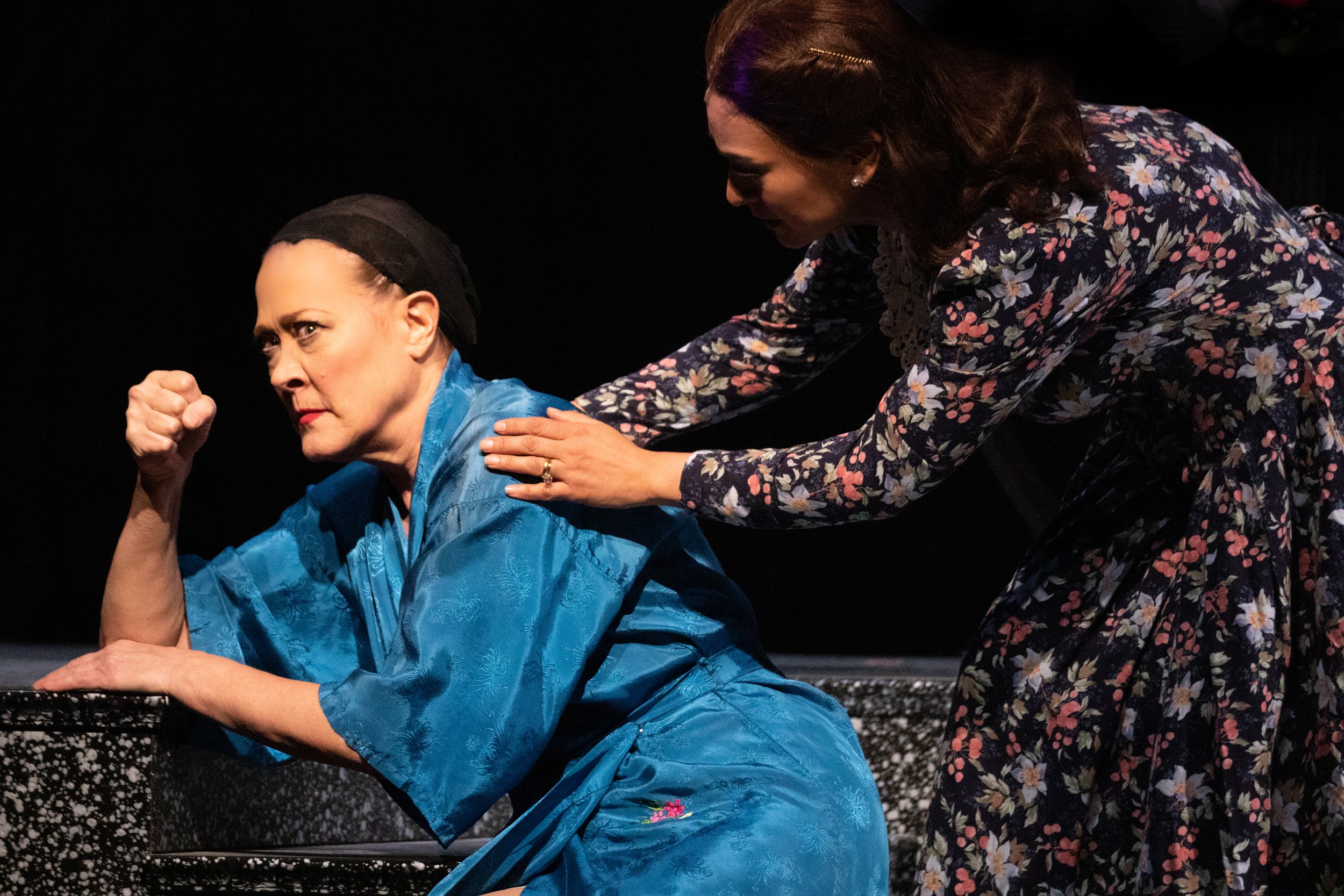This is a story about a group who tells stories. It is also about their most recent storytelling. No mid-Atlantic opera company has delivered more to their fan base so far this season, in the time of COVID, than Virginia Opera. So far, we’ve been given an adventurous, scaled-back Das Rheingold delivered at an outdoor golf facility, followed by Rodolfo Remembers, a trimmed and refocused La Bohéme, and now, Jake Heggie’s Three Decembers, all presented under the threat and restrictions imposed by the coronavirus. From gods on a golf course to ghost-like bohemian lovers to an absentee mom with cause, we have been entertained and engaged artistically at a time when we could not need it more. Kudos to Virginia Opera for their willingness to take calculated risks and find creative responses to the challenges, while maintaining the quality of artistic expression. Even under the most trying of circumstances, President/CEO Peggy Kriha Dye and VO Artistic Director/Conductor Adam Turner continue to honor VO’s tradition of bringing to its audiences “a variety of fresh and compelling operatic experiences”. Indeed, with The Marriage of Figaro and The Sound of Music still to come, their program could hardly be more varied or impressive! As I began to read about their current production, Jake Heggie’s Three Decembers, my interest started to grow and I had to see it. Many questions sprang to mind: why this opera and why now, what was the music like, why the lead change from an opera star to a Broadway star, and did this example of 21st century opera portend the future of VO opera and even opera itself.
Virginia Opera’s President and CEO Peggy Kriha Dye and Artistic Director and Conductor Adam Turner. Photos courtesy of Virginia Opera.
First, let’s discuss the opera’s performance at George Mason University’s Performing Arts Center in Fairfax on Sunday afternoon. Virginia Opera’s production is the 35th production of Three Decembers since its premiere in 2008. It premiered as a two-act chamber opera titled Daybreak at last but was revised to a one-act opera scored for three singers and eleven musicians, now the intimate work about human emotions that the composer originally intended. In an outstanding interview with VO’s preview lecturer Josh Borths, composer Heggie remarked that he is now happy with the work, even stating that at this point he wouldn’t change a single note. I recommend the interview because Mr. Heggie, who also composed the better-known works, Dead Man Walking and Moby Dick, was remarkably forthcoming about his operas, his approach to writing opera, and his personal life. Librettist Gene Scheer wrote the libretto for Three Decembers from an unperformed play by Terrence McNally. Playwright McNally, Mr. Heggie’s longtime friend and collaborator, had suggested that script; he was the librettist for composer Heggie’s first opera, Dead Man Walking. I found Scheer’s libretto to be clever, filled with humor as well as drama, snarky comments, and foreshadows of painful secrets that will be revealed.
Three Decembers chronicles conversations between fictional Broadway star Maddy (Madeline Mitchell), her daughter Bea (Beatrice), and her son Charlie at three time points in their lives, including Christmas season 1986, 1996, and 2006. The opera begins with the grown children talking with each other by phone, spoofing their mother while reading her Christmas letter; mom is spending the holiday in the Caribbean. Though making fun of their absentee mother, they obviously still need her attention and love. Charlie is angry that once again Maddy has called his partner by the name Curt, when his real name is Burt, an upset made more intense because Burt is sick, having contracted AIDS. Bea, also a mother now, is having marriage and drinking problems she hides. It would be unfair to reveal more. Go and enjoy the anticipation that precedes each unveiling. As I left the theater, I heard a woman say that this was the first opera where she had cried. I admit that I also had an issue with my KN-95 mask becoming damp around the edges. I also smiled and laughed a lot. Being human is tough gig. Three Decembers attempts to put it in perspective. For me, the ending seemed a little easy, considering all we had been through. However, I agreed with the final sentiment of the denouement, and I felt about attending the opera what the characters concluded about life itself – “I am so awfully glad I showed up”.
left photo: Efrain Solis as Charlie and Karen Ziemba as Maddy. right photo: Karen Ziemba as Maddy and Cecilia Violetta López as Bea. Photos by Ben Schill Photography; photos courtesy of Virginia Opera.
VO has assembled a wonderful cast to present this work, adding a new aspect not tried before in previous productions of the opera – casting a real Tony Award winning actress/singer in the role of Madeline Mitchell. Artistic Director Adam Turner told me by phone that he got the idea from a mentor friend, director and conductor Rob Fisher, and discussed it with composer Heggie who loved the idea. Broadway singers are able to maintain the warmth and timbre of their voices while belting out the show tunes they are given and having a Broadway star sing the role could add to the authenticity of the drama. As Mr. Turner considered the possibilities for a singer in the right time of life who carried the stature he was looking for, Karen Ziemba was among the top, and he had a contact. Ms. Ziemba won a Tony Award in 2000 for best featured actress in a musical for her role in Contact and has sung in many popular Broadway shows and acted in several popular television series. Mr. Fisher helped recruit her for the role, and Mr. Turner had the rare experience of negotiating a contract to employ a Broadway star; what won’t this man do to bring you a great story! Composer Heggie wrote the role of Maddy for the legendary, classically trained mezzo-soprano Fredericka von Stade, and Mr. Turner had conducted two previous productions where she sang the role. He worked with Ms. Ziemba to help her adjust to the demands of this opera. Since Broadway performers wear microphones for even smaller venues than opera houses, he had all three cast members wear microphones, but said the sound was amplified only a small amount. I thought the sound was fine. I thought Ms. Ziemba gave an effective and affecting performance, very believable as a star of Broadway.
Efrain Solis as Charlie and Cecilia Violetta López as Bea. Photo by Ben Schill Photography; photos courtesy of Virginia Opera.
The roles of the children in Three Decembers are as prominent as the role of the mother, and baritone Efrain Solis as Charlie and soprano Cecilia Violetta López shone in those roles, both in acting and singing; both singers have appeared before in VO productions. Both seemed to me as comfortable with the Broadway aspects as the opera demands of the show. Mr. Solis has played Charlie in two previous productions of Three Decembers. He appears comfortable with musical theater; I recently saw him sing on video “You’ll be back”, a delightful tune from the Broadway hit Hamilton; (it appears at the 23-min mark of a Washington Concert Opera concert video). Ms. López appeared as Adina in VO’s 2019 production of The Elixir of Love; my blog report on that performance said “…for me, it was soprano Cecilia Violetta López that truly held my attention…[she] has a pretty voice laced with charm and warmth, and she sings beautifully.” In this role, she gets to display a greater dramatic range and does this beautifully. Several of the ensemble numbers are highlights such as the Bea/Charlie duet “Father’s Chair” as they each remember the same scene with their deceased father differently.
Conductor Turner said that he was very attached to this opera because he loved the score, “one of the factors I find most compelling in Jake Heggie's writing style is his overarching sense of lyricism accompanying a theatrically-driven storytelling. Every note is in service of the story, but it's given an abundance of beauty, through a primarily tonal lens, with sweeping rhapsodic gestures in many moments followed by colorful expressions of tension and chromaticism in other moments. It's a style of writing I've come to know well over the years, particularly with productions of Dead Man Walking and recent workshops of If I Were You.” I thought the score combined opera in sustaining the drama and Broadway in providing likable melodies; dissonance is used judiciously and effectively. Mr. Heggie’s music in this opera seemed to me to parallel the underlying love that connected the three characters even as it changed to reflect the tumult of the moment. Mr. Turner and the Virginia Orchestra ensemble delivered it well. The work was written for 11 players, but was increased to 16 for VO’s production. The conductor explained, “Given the size of our theaters, I decided to increase the string count by 4 (to give a little extra string warmth to the general sound) and split some of the divisi for woodwinds (some players don't play multiple instruments; for instance, the combined saxophone and flute part was split between two separate players).” He also played one of the two pianos.
Karen Ziemba as Maddy. Photos by Ben Schill Photography; photo courtesy of Virginia Opera.
I also thought the staging for Three Decembers was exceedingly well done. Several mini-sets were moved in and out during the performance without intermission. Our attention was always focused by large frames composed of numerous smaller picture frames, and the scene shifts went at a steady pace that sustained the drama. Kudos to Stage Director Lawrence Edelson and Scenic and Costume Designer Court Watson.
To return to some of my questions: Why this opera and why now? VO Artistic Director Adam Turner has conducted two previous productions and is a long time friend of composer Heggie (interestingly, in the aforementioned interview, Mr. Heggie revealed that he and Ms. Dye knew each other when they were just starting their careers); so, this Heggie opera is a natural fit for VO. Further, the coronavirus pandemic makes it an especially good choice right now; only three singers and eleven musicians required makes observing COVID protocols in rehearsal and staging more manageable; plus, the financial risk of a COVID-forced cancellation is reduced. It also fits in another important way. Director Turner wants to introduce Virginia audiences to wider selection of opera choices, especially more modern works. I am all in with that perspective. I’m looking forward to a Mozart opera in March, but I also like sampling new, fresh, contemporary works, that I can relate directly to and that I haven’t seen five times already. We can also expect to see more contemporary operas in the future in general. Mr. Borths in his pre-opera talk stated that Three Decembers was part of an opera renaissance. New operas are being written and premiered now at a rate unmatched in opera history. That sounds great to me; bring ‘em on. During my life, I have been able to see a new movie every week. What if I could do that with opera?
The Fan Experience: After being performed in Norfolk on January 28, 29, 30 and in Fairfax on February 5 and 6; Three Decembers now moves to Richmond for performances on February 11 and 13. The pre-opera talk by Josh Borths takes place 45 minutes before the opera begins. The opera is sung in English, but still has English subtitles projected on a screen. The next VO opera will be Mozart’s The Marriage of Figaro performed on March 25, 26, 27 in Norfolk, April 1, 3 in Fairfax, and April 9, 10 in Richmond. For any opera today you intend to attend, make sure to check on pandemic restrictions in place at the time, such as vaccination and masking requirements.






